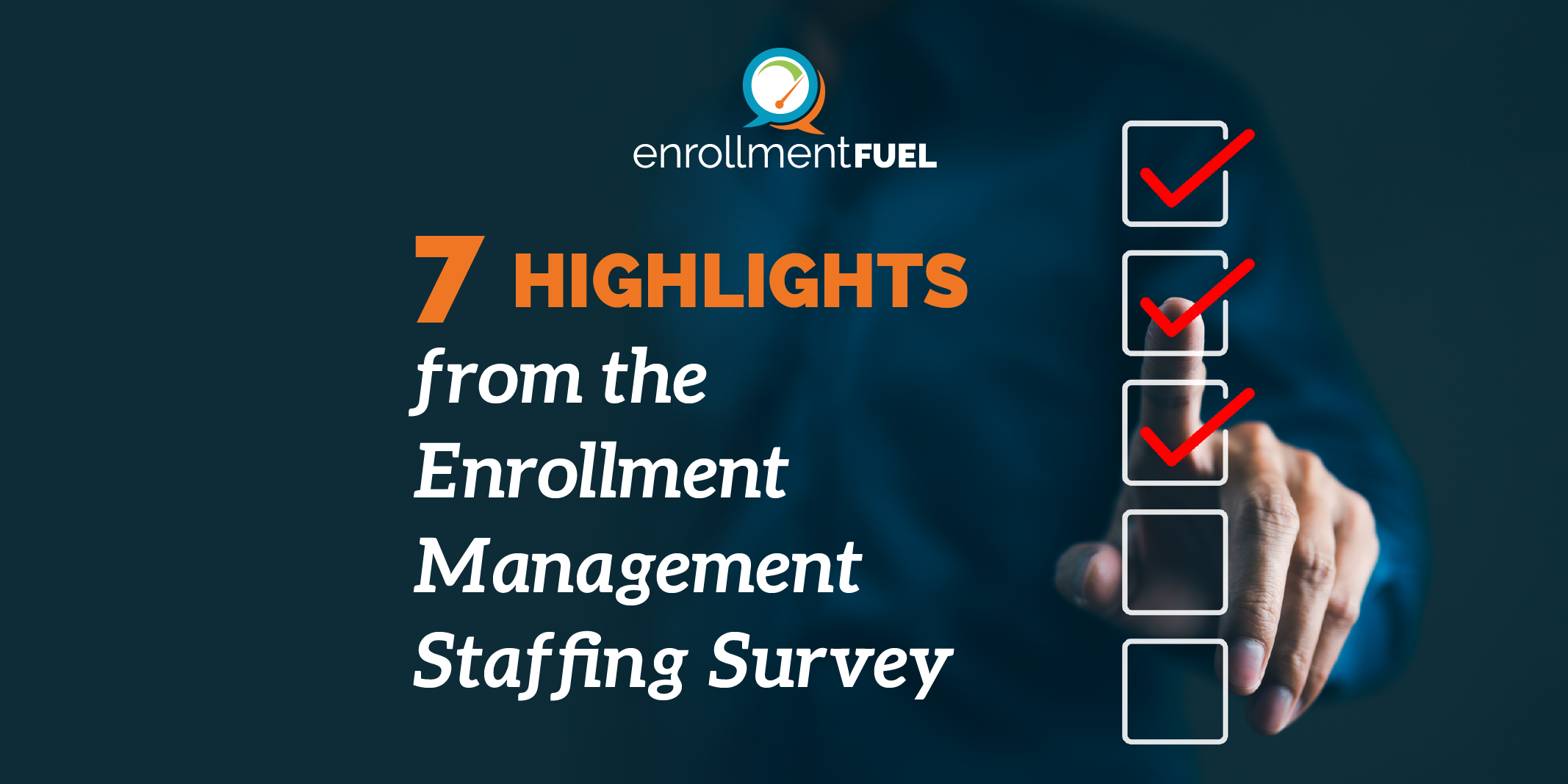Introduction
The 2024-25 Free Application for Federal Student Aid (FAFSA) process has hit a roadblock with reporting delays announced by the U.S. Department of Education. These delays, caused by the need to adjust the financial aid formula for inflation, pose significant challenges for higher education institutions across the United States. In this SEM Review article, we will delve into the causes of these delays, their impact on higher education institutions, and explore possible strategies to navigate the challenges.
The FAFSA Reporting Delays: Causes and Consequences
The recent announcement of delays in transmitting FAFSA information to colleges until mid-to-late March has sent ripples through the higher education community. The primary cause of these delays was the need to update supporting tables in the Student Aid Index (SAI) calculation to account for inflation, as mandated by the FAFSA Simplification Act.1 This adjustment, while crucial for ensuring students receive the maximum financial aid entitled to them, has inadvertently disrupted the traditional FAFSA processing timeline.2
Nearly 4 million FAFSA forms have been submitted since the soft launch on December 30, 2023, and the delays in transmitting Institutional Student Information Records (ISIRs) to colleges have consequences.3 High school seniors, who would have expected their financial aid offers to arrive between late November and late January in previous years, are now facing a severely compressed decision timeline in the spring. As many colleges are pivoting their processes to set them up for lightning-fast award turnaround time, once the ISIR data becomes available, talks of pushing back decision deadlines have flooded the industry channels. And those are just two challenges from a long list.4
Like many other institutional partners in the space, enrollmentFUEL’s team has had a series of conversations with admissions and financial aid teams over the past few weeks and months, and we have come up with some suggestions on what active steps you and your team could undertake in response to these challenges.
Tactics for Institutions to Combat Challenges
-
Extend Decision Deadlines
Consider extending decision deadlines to give admitted students more time to evaluate their financial aid packages. An extension will allow families to make well-informed decisions about attending your institution. Some of our current partners have already announced that they will extend their decision deadlines to June 1 or June 15, while many others have indicated that they are in conversations about extension but are waiting to see how their peer institutions on regional and state levels will react. Whatever you decide ultimately, now is the time to think through what a deadline extension could mean to your processes and overall funnel management.
-
Advocate for Legislative Action
Collaborate with higher education associations to advocate for legislative changes that streamline the FAFSA process and prevent similar delays in the future. Engage with policymakers to communicate the challenges faced by institutions and students. Stay engaged with the news and updates coming from the Department of Education. As of February 13, the DOE announced that it will take additional steps to make it easier for schools to process records by providing a sample ISIR import in advance and reducing verification requirements. Additionally, the DOE has committed further assistance to under-resourced colleges and universities. For more information, visit here for the latest news and updates.
-
Modify Recruitment Communications
Adjust your traditional spring and summer recruitment communications to address the unique challenges posed by the FAFSA reporting delays. Be clear and proactive in communicating with students and their families about what these delays would mean to them, providing pros and cons: award letters will be released at a later date, leaving less time for questions and decisions; however, the new FAFSA aims to more accurately address students’ financial aid needs, which will also be reflected in their award letters.
Continuing communications to encourage families to file the FAFSA is also becoming increasingly important. The National College Attainment Network (NCAN) reports that as of February 9, there has been a 45% decline in FAFSA filers this year over last year. While it is a challenge to gauge right now how much of your admitted pool has completed their FAFSAs, it is probably safe to assume that number is lower than previous years. By the time ISIRs start flowing in, it might be too late to push for additional submissions. The time to do that is now.
-
Re-engage Accepted Students with the Campus
Whenever possible, provide alternative avenues for students to explore your campus and remember the reasons they wanted to attend in the first place. You could have them discuss their academic goals with a career counselor or a faculty member. Or you could organize additional visit days or opportunities for families to connect with your campus through events or alumni representatives. In other words, keep your admitted students engaged in ways outside of the financial discussions that generally occur at this point of the cycle.
Leverage digital platforms for enhanced communication. Virtual campus tours, webinars, and interactive sessions can substitute for traditional on-campus experiences, helping students who are still mulling their options while waiting for news to continue to feel connected and informed.
-
Enhance Financial Aid Counseling Services
Financial aid staff have been busy, for sure, but not nearly as busy as they will be in March and under an acutely shortened timeline. Take the next few weeks to ensure they are fully prepared for the reality of rapid turnaround time and potential increase in financial aid appeals. Use all resources available. On February 16, the Department of Education released a sample ISIR file on its website that provides institutions with fictitious student data to help financial aid offices complete their data import setup in advance. Such a full-court press approach will help ensure your team is ready to hit the ground running whenever the real data is released. Bolster financial aid services and ensure that counseling resources are readily available to address queries and concerns. March will be a bumpy ride, but consistent preparation should smooth out some of the bumps and give your team the confidence that they got this.
-
Continue Monitoring Developments and Implementing Best Practices
You and your team should continue to be on watch for the latest updates from the Department of Education and seek out best practices to employ. Don't miss the opportunity to gain valuable insights and strategies for overcoming the challenges this delay will present. Join enrollmentFUEL's REV: FUEL Learning Series Roundtable—Tactics to Navigate the Storm Amid FAFSA Reporting Delays—on March 19, 2024, from 1-2 p.m. ET. Engage in a meaningful discussion about optimizing your recruitment and financial aid strategies surrounding the FAFSA reporting delay. enrollmentFUEL's REV Roundtables provide a platform for you to connect with peers, share ideas, and devise effective plans to overcome these and other challenges. Secure your spot by completing the registration form found on the page linked above.
Conclusion
The key to making it through the FAFSA season this year lies in adaptability and a proactive approach to ensure a smooth transition for both institutions and students during this unprecedented time. We know how thin your teams are already spread out, so do not hesitate to reach out to a partner like enrollmentFUEL or someone else you trust in the space to ask for help. An outside partner could provide additional training for your admissions or financial aid staff on topics like yield, overcoming objections, having effective financial aid discussions with families, or reviewing the “new FAFSA” changes. We can also alleviate some of the pressure your staff is undoubtedly feeling by taking on some outbound communications—our highly trained teams can call families for you to walk them through filing the FAFSA or provide them with the details of their award notifications, or we can serve a ringless voicemail to any student population to remind them to file their FAFSA, review their awards with a counselor, or submit their deposit. Your success is our delight; we are here to support you however we can.
1 (GENERAL-24-06) 2024-25 FAFSA Student Aid Index Update and Timeline (Updated Feb. 13, 2024). Federal Student Aid. https://fsapartners.ed.gov/knowledge-center/library/electronic-announcements/2024-01-30/2024-25-fafsa-student-aid-index-update-and-timeline-updated-feb-13-2024. 13 Feb. 2024. Electronic Announcement.
2 Lee, Rhonda. FAFSA fix opens $1.8 billion more in financial aid, but expect delays. Yahoo! Finance. https://finance.yahoo.com/news/fafsa-fix-opens-18-billion-more-in-financial-aid-but-expect-delays-183146878.html?guce_referrer=aHR0cHM6Ly93d3cubGlua2VkaW4uY29tLw&guce_referrer_sig=AQAAAMfgfJ_TPU2sEQIRkEyEzvp-r_Cp-yXdrYnjgXfKgZh4Hsfn0N2kPnNIpjl1aX-pCUAoTb2. 30 Jan. 2024. Website.
3 U.S. Department of Education Announces Latest Steps to Support Schools and Students with Better FAFSA. U.S. Department of Education. ttps://www.ed.gov/news/press-releases/us-department-education-announces-latest-steps-support-sch. 13 Feb. 2024.
4 Kantrowitz, Mark. FAFSA Processing Delayed Until March. The College Investor.https://thecollegeinvestor.com/45415/fafsa-processing-delayed-until-march/. 31 Jan. 2024. Website.
Related Articles
FAFSA Delays Strategies & Insights for Higher Ed Professionals
The Free Application for Federal Student Aid (FAFSA) is usually the first step for students trying...
5 Critical SEM Study Considerations | Higher Ed Blog Articles
In these unusual times, colleges and universities face complex challenges. The educational...
Admission and Financial Aid Collaboration for Yield Season
While most training is done in the fall, it is never too late for a quick refresher on important...




